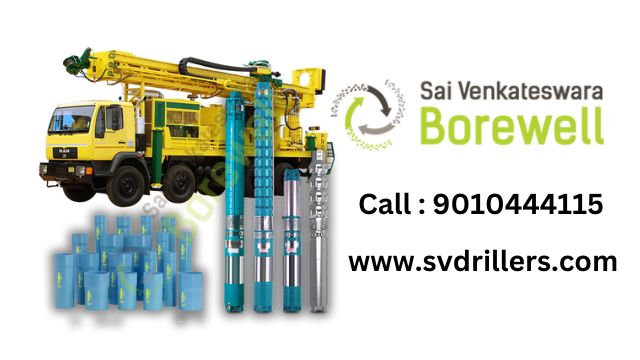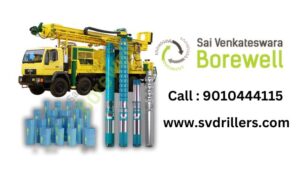🔍 Introduction
Choosing the right casing pipe borewell is crucial for ensuring long-term durability, water purity, and structural integrity. A weak or substandard casing pipe can lead to borewell collapse, contamination, and excessive maintenance costs. But with so many options available – from PVC to stainless steel – how do you select the best one?
In this comprehensive guide, we’ll explore the top casing pipe borewell materials, their benefits, installation best practices, and expert recommendations to help you make an informed decision.
📌 What is Casing Pipe Borewell?
A casing pipe borewell is a protective tube inserted into a drilled hole to:
✔ Prevent borehole collapse
✔ Stop contamination from surface water and debris
✔ Maintain structural stability under pressure
✔ Key Materials Used
- PVC Pipes – Lightweight & corrosion-resistant
- Mild Steel Pipes – Strong but prone to rust
- Stainless Steel Pipes – Highly durable but expensive
- FRP Pipes – Corrosion-proof & long-lasting
👉 Learn more about borewell casing pipe installation
🏆 Best Casing Pipe Materials for Borewells
1️⃣ PVC Casing Pipes
✅ Pros:
☑ Affordable
☑ Resistant to corrosion & chemicals
☑ Easy to install
❌ Cons:
☒ Less durable under extreme pressure
➡ Best For: Shallow borewells (up to 200ft)
2️⃣ Mild Steel Casing Pipes
✅ Pros:
☑ High strength
☑ Cost-effective for medium-depth wells
❌ Cons:
☒ Prone to rust without proper coating
➡ Best For: Medium-depth borewells (200-500ft)
3️⃣ Stainless Steel Casing Pipes
✅ Pros:
☑ Exceptionally durable
☑ Rust-proof & long-lasting
❌ Cons:
☒ Expensive
➡ Best For: Deep & industrial borewells (500ft+)
4️⃣ FRP (Fiber-Reinforced Plastic) Casing Pipes
✅ Pros:
☑ Lightweight & corrosion-proof
☑ Long lifespan
❌ Cons:
☒ Higher initial cost
➡ Best For: High-salinity & contaminated soil areas
⚙️ How to Choose the Right Casing Pipe for Your Borewell?
📍 Factors to Consider:
✔ Depth of Borewell – Deeper wells need stronger materials
✔ Soil & Water Conditions – Saline or corrosive environments require rust-resistant pipes
✔ Budget – PVC is cost-effective, while stainless steel is premium
✔ Lifespan Needed – FRP & stainless steel last decades
🔗 Check our detailed borewell casing pipe guide here
🛠️ Borewell Casing Pipe Installation Checklist
- Conduct a Geolocation Survey – Avoid rocky or collapsing soil.
- Choose the Right Diameter – Typically 4.5” to 8” for domestic borewells.
- Seal the Casing Properly – Prevent sediment & contaminants.
- Ensure Slope Alignment – Helps in efficient water flow.
- Use Filter Screens – Enhances water filtration.
📌 Learn step-by-step installation tips
❓ Frequently Asked Questions (FAQ)
1. What is the lifespan of a casing pipe borewell?
✔ PVC: 10-15 years
✔ Mild Steel: 15-20 years (with coating)
✔ Stainless Steel & FRP: 30+ years
2. Can I replace a damaged casing pipe?
✅ Possible, but expensive. Always choose durable materials from the start.
3. How deep should a casing pipe borewell go?
✔ Domestic wells: 150-400ft
✔ Industrial wells: 500ft+
4. Is PVC casing suitable for deep borewells?
❌ No, PVC is best for shallow wells (<200ft) due to pressure limitations.
5. What maintenance does a casing pipe require?
✔ Inspect for cracks or rust annually
✔ Clean filters regularly
🎯 Conclusion
Selecting the best casing pipe borewell ensures durability, clean water, and minimal repairs. Whether you prioritize affordability (PVC), strength (mild steel), or longevity (stainless steel/FRP), each material has its advantages.
🚀 Need expert help?
📞 Call us today at +91 9010444115
🌐 Visit SV Drillers for a free consultation!
🔗 Keyword & URL List
📌 Casing pipe borewell – https://svdrillers.com/casing-pipe-borewell
📌 Borewell installation – https://svdrillers.com/borewell-installation-in-beeramguda
📌 PVC casing pipes – https://svdrillers.com/pvc-casing-pipes
📌 Stainless steel borewell casing – https://svdrillers.com/stainless-steel-casing
📌 FRP borewell pipes – https://svdrillers.com/frp-borewell-pipes
For expert web design & digital marketing, visit our partners at Vebnox!



